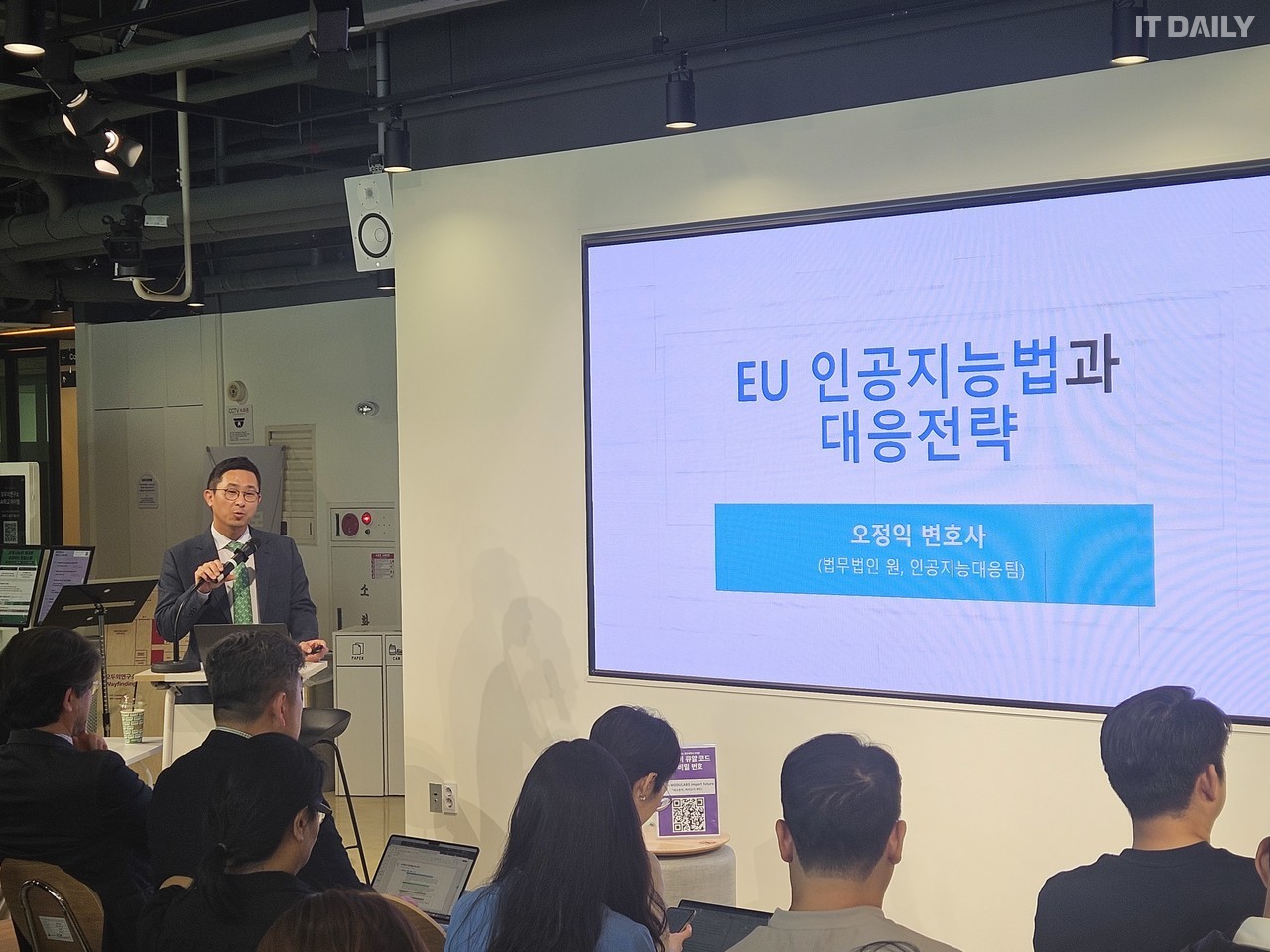
[IT Daily] “The European Union’s (EU) artificial intelligence (AI) law is not an issue that only applies to the IT field, such as generative AI. Even if AI-related results are used in other fields, they may be subject to regulation. Therefore, all companies considering entering Europe should carefully review the scope of application of AI law.”
At the 'Seminar for Corporate Response to EU AI Law' held by One Law Firm and the Everyone Research Institute on the 17th, attorney Oh Jeong-ik spoke about strategies to respond to EU AI law and made this statement.
This seminar was designed to provide insight from experts to help understand the EU's new AI regulations, identify legal risks resulting from technology abuse, and establish response plans.
First, Oh Jeong-ik, an attorney from One Law Firm’s Artificial Intelligence Response Team, gave a presentation on the topic of ‘EU AI Law and Response Strategy.’
The EU AI Act was approved by the EU Parliament on March 13 after the Commission proposed the bill in April 2021 and went through consultation and revision. It is scheduled to take effect in April or May, and some prohibitions will be applied in stages 6 to 36 months from the effective date.
In particular, the EU AI law divides AI into four risk levels depending on the field of use. AI that causes confusion in decision-making or exploits individual or group vulnerabilities is completely prohibited, and in other types of cases, penalties such as fines are imposed for violations of regulations. Additionally, regulations apply not only to AI models but also to companies that use the results.
The problem is that the EU AI law is so comprehensive that it is difficult to determine the exact scope of application. Attorney Oh Jeong-ik said, “There is a lot of content related to AI included in the bill, but there are many ambiguous provisions, so it is difficult to predict how it will actually be implemented. “There will be differences of opinion among individuals and countries regarding the direction of interpretation of the detailed provisions,” he pointed out.
Attorney Oh then added, “As the guidelines must be announced before the effective date, we will have to monitor the situation and consider response plans.”
Next, Kim Yun-myeong, expert at One Law Firm, gave a presentation on ‘Generative AI and data ethics.’ During the process of AI development and use, various issues surrounding data arise, and there are various opinions around the world on issues such as crawling, whether to allow text data mining (TDM), and 'data poisoning' to prevent data use. It's coming out.
Expert Kim Yun-myeong emphasized the importance of clear legislation amidst the debate over data ethics. Commissioner Kim said, “The domestic AI basic law currently being discussed has poor predictability. “Due to uncertainty, it may place a burden on business operators,” he said. “If proper regulations are not established in the next National Assembly, there is a risk of damage to domestic AI companies.”
Next, INEEJI Business Director Yoon-seok Jang shared response strategies from the company's perspective, and afterwards, presenters and Lutten Technologies CEM Lead Dae-yeon Jin attended and discussed the seminar topic.
Meanwhile, One Law Firm launched the Artificial Intelligence Response Team in 2020 to resolve legal issues that companies face during the development and use of AI. The artificial intelligence response team participated in the development of voice phishing prevention technology and AI regulation resolution consulting projects, and provided various legal advice related to AI, data ethics, and personal information protection, including publishing 'Curious AI and the Law with 50 Questions and 50 Answers.' Supporting.







